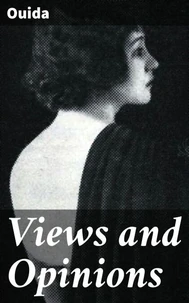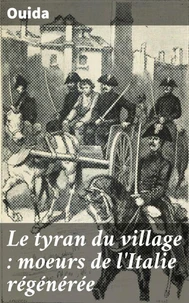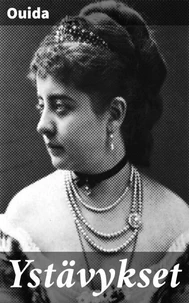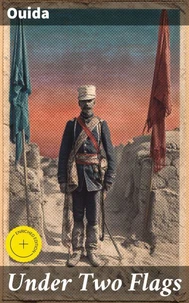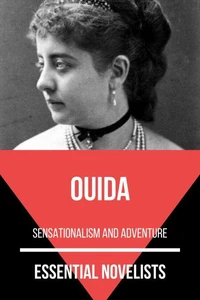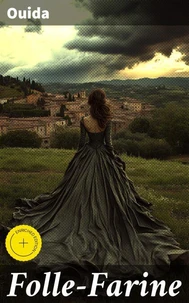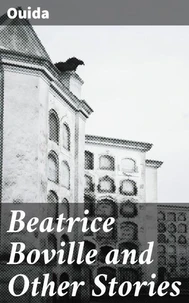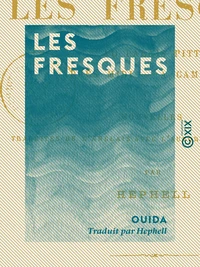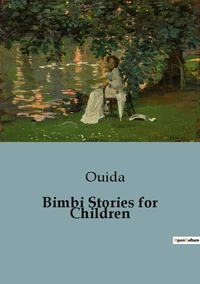Folle - Farine
Par :Formats :
Disponible dans votre compte client Decitre ou Furet du Nord dès validation de votre commande. Le format ePub est :
- Compatible avec une lecture sur My Vivlio (smartphone, tablette, ordinateur)
- Compatible avec une lecture sur liseuses Vivlio
- Pour les liseuses autres que Vivlio, vous devez utiliser le logiciel Adobe Digital Edition. Non compatible avec la lecture sur les liseuses Kindle, Remarkable et Sony
 , qui est-ce ?
, qui est-ce ?Notre partenaire de plateforme de lecture numérique où vous retrouverez l'ensemble de vos ebooks gratuitement
Pour en savoir plus sur nos ebooks, consultez notre aide en ligne ici
- Nombre de pages453
- FormatePub
- ISBN859-65--4735695-0
- EAN8596547356950
- Date de parution16/09/2022
- Protection num.Digital Watermarking
- Taille652 Ko
- Infos supplémentairesepub
- ÉditeurDIGICAT
Résumé
In her novel "Folle-Farine, " Ouida delivers a rich tapestry of emotions woven through the intricate lives of her characters, set against a backdrop of societal constraints and personal aspirations in 19th-century Europe. The narrative style is characterized by lush prose, vivid descriptions, and an exploration of themes such as love, identity, and the struggle for independence. This psychological drama unfolds through the perspective of a spirited protagonist who challenges the norms of her time, deftly reflecting the complexities of the human experience and the ramifications of societal expectations on individual agency.
Ouida, born Maria Louise Rame in 1839, was a prominent Victorian novelist known for her engaging storytelling and strong female characters. Her experiences in elite circles, coupled with her observations of the stark realities faced by women and the underprivileged, profoundly influenced her writing. "Folle-Farine" is often viewed both as a critique of social conventions and a celebration of the resilience of the human spirit, mirroring Ouida's own life as a figure who often defied societal restrictions.
Readers interested in literature that intersectionally examines class, gender, and personal identity will find "Folle-Farine" an illuminating read. With its evocative prose and compelling narrative, Ouida's work remains a powerful reminder of the struggles for self-determination and the richly textured realities of 19th-century life.
Ouida, born Maria Louise Rame in 1839, was a prominent Victorian novelist known for her engaging storytelling and strong female characters. Her experiences in elite circles, coupled with her observations of the stark realities faced by women and the underprivileged, profoundly influenced her writing. "Folle-Farine" is often viewed both as a critique of social conventions and a celebration of the resilience of the human spirit, mirroring Ouida's own life as a figure who often defied societal restrictions.
Readers interested in literature that intersectionally examines class, gender, and personal identity will find "Folle-Farine" an illuminating read. With its evocative prose and compelling narrative, Ouida's work remains a powerful reminder of the struggles for self-determination and the richly textured realities of 19th-century life.
In her novel "Folle-Farine, " Ouida delivers a rich tapestry of emotions woven through the intricate lives of her characters, set against a backdrop of societal constraints and personal aspirations in 19th-century Europe. The narrative style is characterized by lush prose, vivid descriptions, and an exploration of themes such as love, identity, and the struggle for independence. This psychological drama unfolds through the perspective of a spirited protagonist who challenges the norms of her time, deftly reflecting the complexities of the human experience and the ramifications of societal expectations on individual agency.
Ouida, born Maria Louise Rame in 1839, was a prominent Victorian novelist known for her engaging storytelling and strong female characters. Her experiences in elite circles, coupled with her observations of the stark realities faced by women and the underprivileged, profoundly influenced her writing. "Folle-Farine" is often viewed both as a critique of social conventions and a celebration of the resilience of the human spirit, mirroring Ouida's own life as a figure who often defied societal restrictions.
Readers interested in literature that intersectionally examines class, gender, and personal identity will find "Folle-Farine" an illuminating read. With its evocative prose and compelling narrative, Ouida's work remains a powerful reminder of the struggles for self-determination and the richly textured realities of 19th-century life.
Ouida, born Maria Louise Rame in 1839, was a prominent Victorian novelist known for her engaging storytelling and strong female characters. Her experiences in elite circles, coupled with her observations of the stark realities faced by women and the underprivileged, profoundly influenced her writing. "Folle-Farine" is often viewed both as a critique of social conventions and a celebration of the resilience of the human spirit, mirroring Ouida's own life as a figure who often defied societal restrictions.
Readers interested in literature that intersectionally examines class, gender, and personal identity will find "Folle-Farine" an illuminating read. With its evocative prose and compelling narrative, Ouida's work remains a powerful reminder of the struggles for self-determination and the richly textured realities of 19th-century life.




